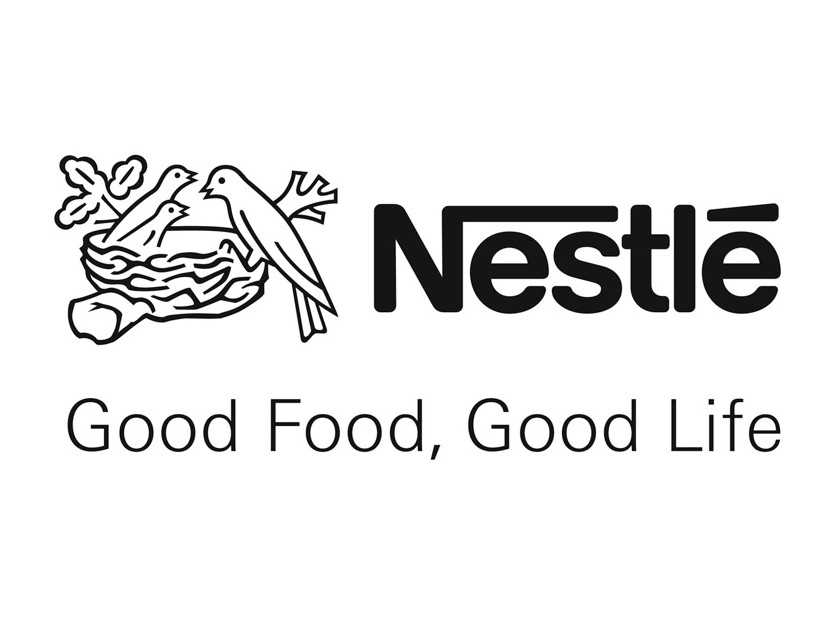The self-styled “global leader in nutrition, health and wellness” earns 10% of its sales from confectionery with brands such as Smarties, Kit Kat and Baby Ruth candy bars.
Its biggest sector, representing 22% of sales, is powdered and liquid beverages, which includes its famous Nescafé and Nespresso coffee brands. Milk products aren’t far behind, with Nesquik drinks and Mövenpick and Häagen-Dazs
ice-creams.
Nestlé’s prepared-foods sales were hit last year when its popular Maggi noodles were off the shelves for five months in India amid claims that they contained dangerously high levels of lead. The ban was eventually overturned in the high court.
Nestlé is big in water with Perrier, Vittel and San Pellegrino. Pets get a look-in too, with Purina cat and dog chow.
The former PPA business columnist of the year has a PhD in marketing, an MBA from London Business School and is a partner at Passionbrand
People would like to eat more healthily – really, they would. It’s just that they’re encumbered with this awkward impediment called “being human”, which means, among other things, that they tend to prefer ice-cream and doughnuts to mung beans and tofu.
That same human condition also inclines them towards laziness and looseness when it comes to detailed understanding of food. Is cholesterol all bad? How much sugar is OK? Is an Orangina one of your five a day? What are trans-fats anyway, and who’s got time to keep up with all this stuff when even the experts disagree?
Trolley trade-offs
So human beings solve the problem by making little deals with themselves – “trolley trade-offs”, where the presence of apples, salmon and broccoli gives them permission to top up with crisps and a melting-middle pudding. It’s a rough-and-ready balance but why not? Life is short, and the hope is that the good things among the bad at the checkout will help ensure it doesn’t get shorter still.
Chances are some of those items will have been made by global food behemoth Nestlé, which is behind some 1,500 everyday supermarket lines (see panel). This coldest of corporations has always had difficulty in presenting its human face and yet, in some ways, it mirrors the messiness of its customers. It declares itself a “nutrition, health and wellness” company, yet its own basket of brands embraces a similar bad/good spread: Smarties and Häagen-Dazs at one end, San Pellegrino and Lean Cuisine towards the other.
Like consumers, it is content to keep things vague. That “wellness” descriptor is the giveaway. It could mean pretty much anything, from not being at death’s door to bouncing with rude vitality. It’s a nice, loose, comforting term that owes everything to human haziness and nothing to scientific precision.
Perhaps not for much longer, though. The business has just appointed a new chief executive, Ulf Mark Schneider, who hails from a genuine health company, Fresenius, which makes medical products for dialysis patients. His will have been a world of terminological precision, clinical trials, evidence-based analysis and sales pitches, where every claim has a little number after it denoting scientific source.
The appointment, the first at this level from outside the company since 1922, was welcomed by analysts as underscoring Nestlé’s determination to pursue the health agenda in an increasingly obese world. And, clearly, Schneider will be comfortable with Nestlé’s recent moves into medical nutrition – with the acquisitions of professional brands in diabetes and gastroenterology – since the rules of the game are those he’s accustomed to.
The question is what he will do with the far larger consumer portfolio and how he will reconcile the confectionery heritage with the health direction of travel. Speculation is that he may cull the chocolate brands – though giving them up may be as hard for shareholders as it is for consumers.
Faux health claims
Whatever the business sense, from the consumer standpoint, the extremes aren’t the issue. Everyone knows sugar is bad and chocolate should be enjoyed in moderation. At the other end of the spectrum, medical health foods are prescribed by doctors, so no further advice is needed there.
Where consumers struggle is with the faux health claims of pretty much everything in-between – whether from Nestlé or our other big food corporates, which love to talk about “goodness” and “vitality” without deigning to define terms.
So people have wasted billions on dubious low-fat options; they have forked out for added vitamins and ended up with expensive urine; they have been duped by probiotics that get destroyed by acids in the stomach before they can do any good in the gut.
With a true healthcare professional at the helm, perhaps Nestlé will be the food giant to take the words “health” and “nutrition” literally and bring an evidence-based approach to the market. Its agencies would have to play differently, too, moving from airy assertion to scientific precision in their PowerPoint presentations and finding ways to bring evidence to life vividly but accurately in communications.
How to do a service to humankind
Nestlé is a corporate brand that has long struggled to move beyond the sins of its past. It may never succeed in convincing us that it has a warm, human heart. But if it can bring evidence-based understanding of nutrition to consumers around the world, and stick to the scientific truth even when commercially inconvenient, it will have done a service to humankind.
Helen Edwards

















